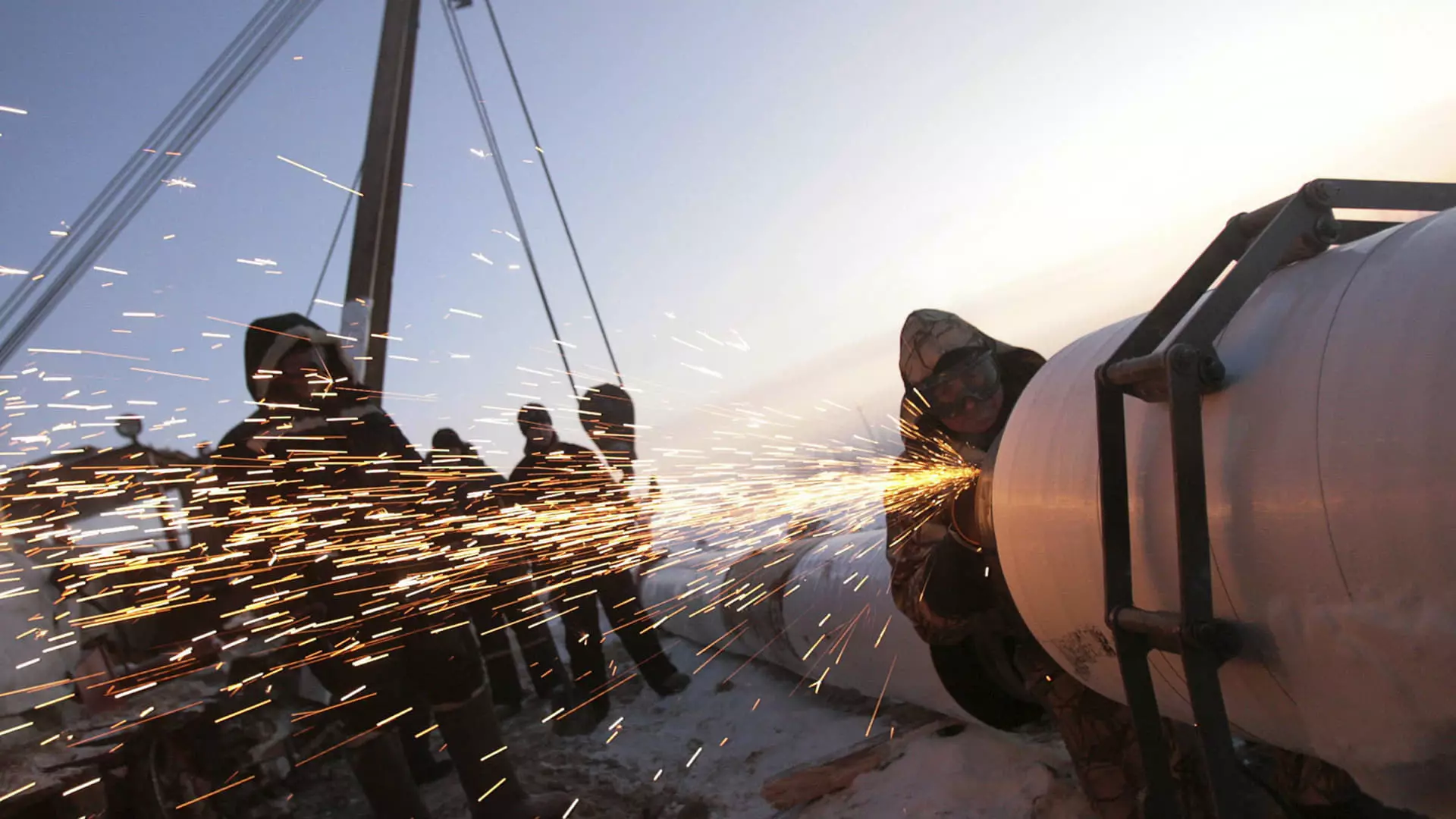The ongoing geopolitical tensions ignited by the Ukraine conflict continue to reshape the European energy market, with Russian gas supplies dwindling significantly. As the situation evolves, the roles and reliance on traditional energy routes are in flux, raising questions about energy security and supplier relationships.
On a recent Saturday, Gazprom, the Russian gas giant, maintained steady gas deliveries to Europe through Ukraine, despite significant disruptions affecting Austria’s largest energy company, OMV. Vienna had received formal notice from Moscow about an impending cut in supply hours before the halt occurred. This gradual severing of ties represents not just a drop in quantities supplied but also hints at a broader strategic pivot in the European energy landscape, which had relied heavily on Russian natural gas prior to the war in Ukraine.
The complexities stem from a recent arbitration case where OMV was awarded damages due to Gazprom’s failure to meet supply obligations. In response, OMV is seeking to offset these damages against current gas deliveries, effectively pausing payments for gas supplied via Ukraine. This maneuver exemplifies how inter-company disputes can further entangle the already intricate web of international energy reliance and geopolitics.
Before the conflict surged, Russia had positioned itself as the biggest single supplier of natural gas to Europe, fulfilling nearly 35% of the continent’s demand. The Nord Stream pipelines and the Urengoy-Pomary-Uzhgorod route facilitated this dependency, underscoring a relationship fortified over decades since the post-World War II era when major Siberian gas deposits were discovered. These energy links not only supplied heat and power across Europe but also wove economic ties between Russia and its continental customers.
However, the war in Ukraine has drastically altered these dynamics. With the destruction of key infrastructure, like the Nord Stream pipeline—alleged to have been sabotaged—Europe’s energy security is in a precarious position. Some reports suggest the involvement of Ukrainian officials in this destruction, though Kyiv denies such claims, indicating that blame is being politically charged by all parties involved.
Currently, Austria’s energy regulator confirmed that Gazprom’s deliveries to OMV were halted, revealing that the company had accounted for a substantial portion of Russian gas flowing through Ukraine—approximately 40%—which translates to around 17 million cubic meters of gas daily. As Austrian customers experience a lull in supply volatility for now, the future remains uncertain. Gazprom stated that it would still send the same volume of gas across Ukraine, but these are largely symbolic statistics, particularly as the anticipation grows over potential further cuts.
With the Urengoy-Pomary-Uzhgorod pipeline poised for closure at the end of the current year, the loss of Austria as a significant transit hub could restrict Russian gas exports, confining them primarily to Hungary and Slovakia, with the latter having its own dependence on Ukrainian flows. The importance of maintaining diverse and reliable energy sources has never been clearer as Europe seeks to wean itself off Russian supplies.
The fallout from the war has seen a dramatic shift in Europe’s energy procurement strategies. In 2023 alone, Gazprom’s shipments through Ukraine have plummeted to approximately 15 billion cubic meters, merely 8% of the peak flows recorded in 2018-2019. This sharp decline highlights an urgent need for European nations to diversify their energy portfolios, looking toward suppliers such as the United States, Norway, and Qatar to fill the void.
The International Energy Agency (IEA) illustrates this shift starkly; in 2023, Ukrainian transit routes delivered 65% of gas demand in key regions including Austria, Hungary, and Slovakia. Meanwhile, countries across Europe are racing to implement sustainable energy alternatives, striving not only for energy security but also for greater independence from geopolitical strife.
The Russian natural gas saga illustrates deep-rooted challenges stemming from geopolitical conflicts impacting global energy dynamics. As Europe grapples with reduced Russian supplies, strategic decisions made in the coming months regarding energy sourcing, diversification, and sustainability will prove crucial. The lasting effects of this energy crisis could redefine relationships within Europe and beyond, fostering a new era of energy independence and cooperative solutions.


Leave a Reply